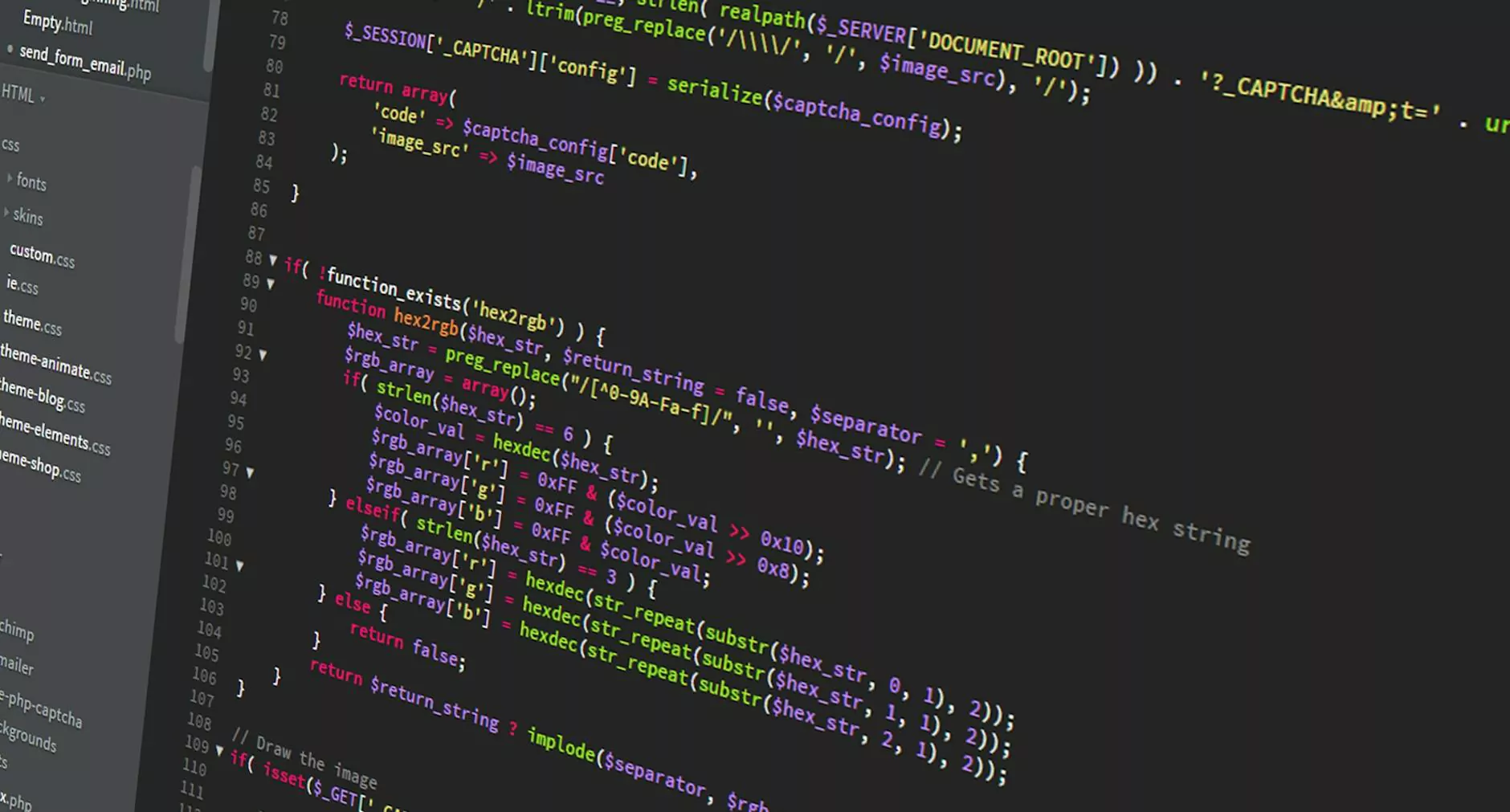Creating Ansible Roles from Scratch: Part 1
Blog
Welcome to Newark SEO Experts, your trusted partner in digital marketing. In this detailed guide, we will walk you through the process of creating Ansible roles from scratch. Ansible is a powerful automation tool that allows you to manage and automate your IT infrastructure.
Why Ansible?
Before we dive into the nitty-gritty details, let's understand why Ansible is worth your time and effort. Ansible brings simplicity, consistency, and scalability to infrastructure automation. Whether you are managing a small-scale server or a complex network, Ansible enables you to orchestrate your infrastructure with ease.
Understanding Ansible Roles
Ansible roles are a powerful way to organize and reuse your configuration code. A role is a collection of tasks, variables, files, and templates that work together to accomplish a specific goal. You can think of roles as building blocks that allow you to structure your Ansible projects in a modular and scalable manner.
When creating Ansible roles, it is essential to follow best practices and adhere to conventions. This ensures that your roles are reusable, maintainable, and easily understandable. In the following sections, we will guide you through the step-by-step process of creating Ansible roles from scratch.
Setting Up the Project Structure
First and foremost, let's create the directory structure for our Ansible project. By organizing your project in a structured way, you make it easier to manage and update your roles in the future.
$ mkdir myansibleproject $ cd myansibleproject $ mkdir rolesInside the "roles" directory, we will create a new role called "webserver" as an example. Feel free to choose any other name that suits your project requirements.
$ cd roles $ ansible-galaxy init webserverDefining the Role Tasks
Tasks are the heart of your Ansible roles. They define the actions to be executed on the target hosts. Let's create a new file called "main.yml" in the "tasks" directory of our "webserver" role.
$ cd webserver/tasks $ touch main.ymlOpen the "main.yml" file with your favorite text editor and start defining the tasks required for your web server role. You can perform actions such as installing packages, managing services, and configuring files.
--- - name: Install Nginx apt: name: nginx state: latest - name: Copy Nginx configuration template: src: nginx.conf.j2 dest: /etc/nginx/nginx.conf mode: 0644 - name: Start Nginx service: name: nginx state: startedMake sure to customize the tasks based on your specific requirements. You can add additional steps and configurations to tailor the role to your needs.
Managing Role Variables
Variables allow you to make your roles more flexible and customizable. You can define variables at different levels, including role defaults, task-specific variables, and host-specific variables. Let's define some variables for our web server role.
Create a new directory called "defaults" in the "webserver" role directory.
$ cd ../ $ mkdir defaultsInside the "defaults" directory, create a new file named "main.yml".
$ cd defaults $ touch main.ymlEdit the "main.yml" file and define the default variables for your web server configuration.
--- webserver_port: 80 webserver_root: /var/www/htmlThese variables will be used throughout your role to ensure consistency and allow customization based on the host requirements.
Testing the Role
Testing your roles is crucial to ensure they perform as expected. Ansible provides various testing frameworks such as Ansible Playbooks, Molecule, and Test Kitchen. Here, we will use Molecule to test our "webserver" role.
First, make sure you have Molecule installed on your system.
$ pip install moleculeNext, navigate to the root directory of your project and initialize Molecule for the "webserver" role.
$ cd myansibleproject $ molecule init role webserverThis command generates the necessary files and directories for testing your role.
Now, you can create test cases using different scenarios, such as running the role on different operating systems or with specific variables.
Once your test cases are defined, execute the tests using the following command:
$ molecule testMolecule will provision a test environment, apply the role, and validate the expected outcomes. This helps you confidently deploy your roles without unexpected issues.
Conclusion
Congratulations! You have successfully set up the project structure, defined tasks, managed variables, and tested your Ansible roles. This comprehensive guide serves as a starting point for creating powerful automation workflows with Ansible.
At Newark SEO Experts, we specialize in digital marketing services, including search engine optimization (SEO) and high-end copywriting. We understand the importance of strong online presence and top search rankings for businesses. Our expert team utilizes the latest industry practices to help businesses outrank their competitors and drive organic traffic.
If you need professional assistance with your digital marketing strategy or have any questions, don't hesitate to contact us. We're here to help you succeed.










